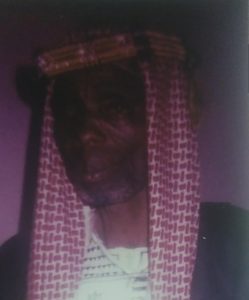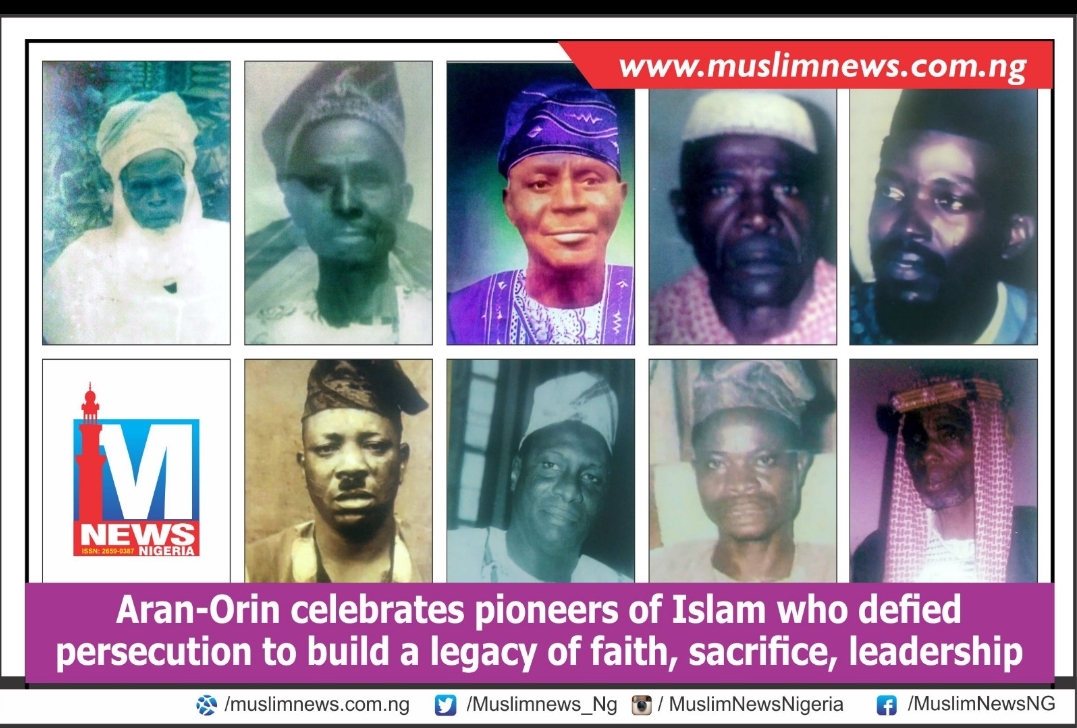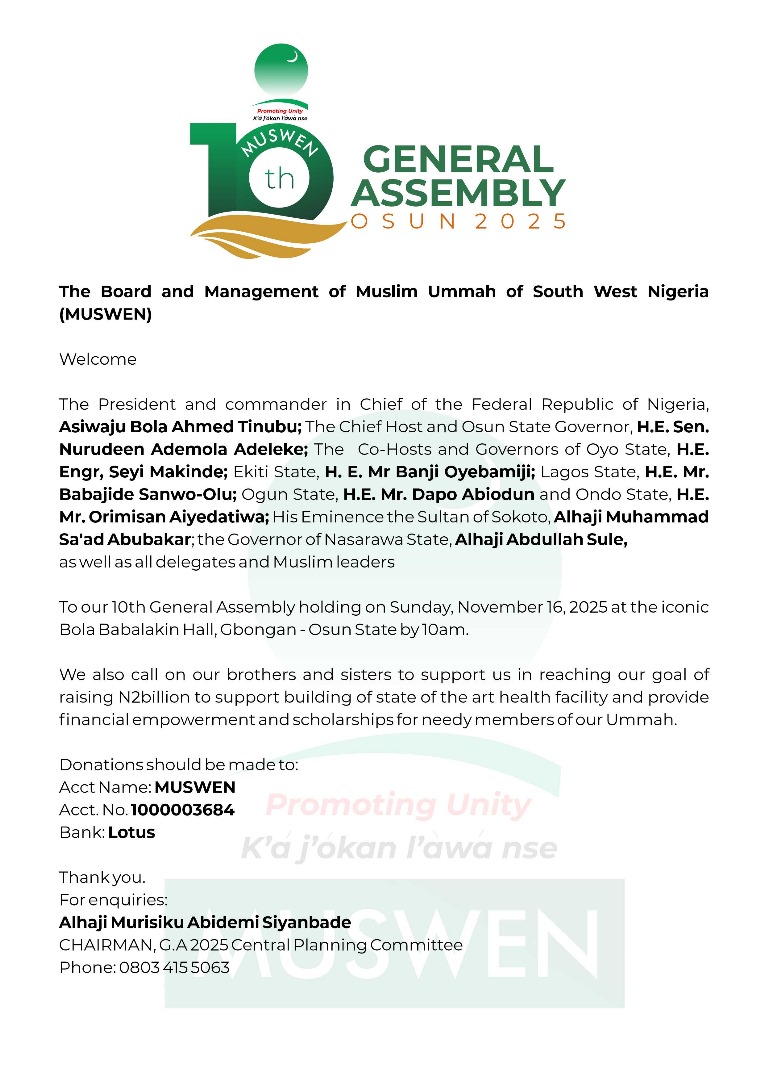By Safiyyah Abdur-Razaq
The Muslim community of Aran-Orin has honoured ten posthumous awardees—early converts who endured persecution to establish Islam in the once predominantly traditional town.
The event, held on Saturday, June 7, 2025, the second day of Eid-al-Adha, 1446 (June 7, 2025) to raise funds for the reconstruction of the town’s central mosque, drew descendants of the honourees, Islamic scholars and community leaders.
A town transformed by faith
For decades, Aran-Orin – a quiet town in Irepodun local government area of Kwara State, has been known for its vibrant Islamic identity, but its journey of religious transformation was far from easy.
“It was shaped by the courage, sacrifice, resilience, and vision of certain men who championed the cause of Islam at a time when it was far from accepted,” said Dr. Prince Yusuf Bamigboye, the Chairman, Muslim Community of the town, in his opening remarks at the well attended events by the sons and daughters of Aran-Orin.
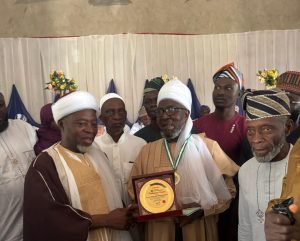
According to him, “These pioneers faced hostility, persecution, social exclusion, and spiritual tests, yet they remained steadfast. Their commitment not only nurtured Islam but also laid the foundation for future generations to practice their faith freely.”
In this report by Muslim News Nigeria, we chronicle the lives of the honored pioneers and their sacrifices in the construction of Aran-Orin’s Islamic community. Tagged: ‘The Legends: A legacy of faith and courage, their stories are not just of faith, but of service, enterprise, leadership, and remarkable human spirit.
Imam Salaudeen Ayinde Bankole: The Resilient and Indomitable Imam
The first Chief Imam of Aran-Orin, Imam Salaudeen Ayinde Bankole embraced Islam through the influence of his brother, Mallam Raji Olasehinde, who had earlier accepted Islam in Ede. A committed farmer, his yearning for Islamic knowledge led him to travel to Ila-Orangun, Ede, and Ilorin for religious studies.
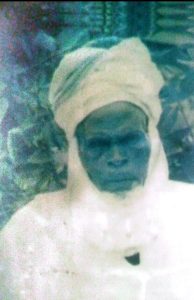
At a time when public drumming was banned, the Muslim community attempted to celebrate a religious occasion using the traditional Sakara drum. This led to their arrest and presentation before the King-in-Council. Imam Salaudeen, returning from his farm, ordered the Muslims to disperse. The king, acknowledging his authority and influence, did not challenge the order nor summon the Muslims back. This singular act of courage led to his unanimous appointment as the town’s first Chief Imam.
He established Aran-Orin’s first Arabic school within his residence, attracting students from both the town and neighboring communities. His growing influence, however, provoked hostility. Traditional worshippers destroyed his maize and yam farms. Upon discovering the damage, he lifted his hands and prayed, “O Allah, those who have done this seek to humiliate me and deny me honour. Hold them back. May they never complete their own homes before I complete mine.” His prayer was answered, and those behind the act faced setbacks in their lives.
Imam Bankole’s marital journey was fraught with trials. Local opposition prevented him from finding a spouse within the community. His attempts to marry from other towns ended in heartbreak, as his wives were abducted and warned never to return to Aran-Orin, or risk death.
After the death of his elder brother, tradition required him to marry both his brother’s widow and their ancestral deity, Orisa Oko. Instead, he received the ritual instruments and buried them in the forest. He famously declared, “Orisa Oko has gone to the bush and it will never return again.” Worship of the deity ceased permanently in Aran-Orin.
Alhaji Yusuf Onifade Bamigboye: The Pioneer of Islamic Growth in Aran-Orin
Though a late convert to Islam, Alhaji Yusuf Onifade Bamigboye quickly became a spiritual anchor for many reverts in his family compound, Ile Oba. His community status and dedication to the faith earned him the title of the first Balogun Adinni of Aran-Orin in 1946.
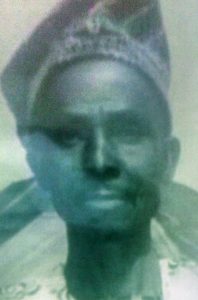
In 1959, he singlehandedly constructed the town’s second mosque, Mosalasi Balogun, which remains active to this day. It served as the central mosque during renovation periods. His commitment to Islam was evident in remote farming settlements like Faje and Ibale (now Olowonijere), where he designated prayer spots and made sure to return home every Friday for Jumu’ah.
His family continues his legacy with the renovation of mosques in Olowonijere and Olomi-Oja by his children and grandchildren. Despite his close kinship with the Alaran of Aran-Orin, HRH Oba Obembe Owolabi Abolarin Ilufemiloye I, religious differences never strained their relationship. He respectfully abstained from traditional festivals like Agan and Egungun, with his stance widely accepted.
In 1982, he performed the Hajj pilgrimage at an advanced age, impressing fellow pilgrims with his insistence on performing all rites unaided. Married to four wives—two of whom he led to Islam—he left behind a large family. His widow, Madam Ayisatu Adediyun Awele Bamigboye-Abolarin, is a highly regarded figure and serves as Iya Egbe of the YMAN, Aran-Orin Branch.
Mallam Bello Olanipekun: A Pioneer of Faith and Legacy
A devout Muslim and prosperous farmer, Mallam Bello Olanipekun was widely respected for his piety and was recognized as the first Seriki Adinni of Aran-Orin. He played a pivotal role in securing the land for the current central mosque and the adjacent Muslim burial ground.
Among the first parents to send children to madrasah in Ilorin, his commitment to Islamic education influenced generations. His children continue to represent his legacy with integrity and service to Islam.

Mallam Jimoh Abogunrin Bello Arowomonle: A Shinning Pillar of Islam
Born in 1906 into a traditional religious background, Mallam Arowomonle embraced Islam in 1926. He was both a successful farmer and businessman, known for his wealth, generosity, and community leadership. His entire compound converted to Islam due to his influence, though he maintained respectful relationships with non-Muslim relatives.
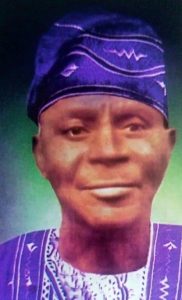
Opposition from traditionalists culminated in an attempted spiritual attack using a masquerade, which died during the act. Mallam Arowomonle was physically assaulted and arrested. Refusing injustice, he filed and won a landmark case at the native court in Oke-Onigbin—beyond the local king’s jurisdiction. This victory galvanized the Muslim community and encouraged education among Muslim children.
He facilitated the establishment of the first central mosque and sponsored the Chief Imam’s further Qur’anic studies. His son, Audu, was the first child born into Islam in Aran-Orin. Mallam Arowomonle died in 1976, leaving a legacy of courage, education, and faith.
Alhaji AbdusSalami Olajide Awayewaserere: A Courageous Defenders of Faith and Hospitality
Born into a traditional family, Alhaji Olajide’s path to Islam began with a profound conversation with his father about the dignity of prayer. Embracing Islam, he openly opposed idolatry and tore off the regalia of a masquerade, exposing its human wearer—an act that nearly cost him his life. Despite death threats, he survived, fathered many children, and became a revered figure.
In a dramatic incident, he remained in prayer with the Imam during the arrival of a feared masquerade, Lekewogbe. The masquerade circled them and left in silence. Rumors of their death spread, but both survived, inspiring awe across the community.
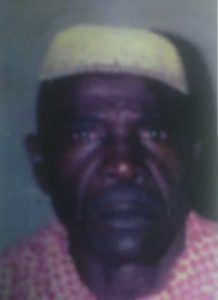
Appointed the community’s Muslim tax collector, he traveled widely without keeping written records, yet accounted accurately for all collections. He was also known for his generosity in hosting Islamic teachers, earning the title “Awayewaserere.”
Alhaji Ismail Oyeyipo Olorungbebe: The Torchbearer of Islam in Aran-Orin and Beyond
A symbol of knowledge and humility, Alhaji Ismail Olorungbebe was among the first Muslims from Aran-Orin sent to Ilorin for Islamic education after a mass withdrawal from colonial schools due to forced religious conversions. Once mocked, he and his peers later became university graduates and respected leaders.
He rose to lead the Young Muslim Association of Nigeria (YMAN), mentoring youth and returning every Eid to stage educational dramas in Aran-Orin. His leadership style was nurturing, visionary, and inspiring.

Once accused of misusing YMAN funds for Hajj (which he performed through sponsorship), he turned the accusation into a prayer, saying: “They are praying YMAN will one day sponsor pilgrims. May Allah make it happen.” His legacy remains embedded in the growth of YMAN across multiple states.
Chief Raji Adeoti Afolayan: The Defender of Faith and Youth
Chief Eesa Raji Afolayan, the second in command to the Alaran, was a respected Muslim and a successful entrepreneur. Owner of the first vehicle in Aran-Orin, he dedicated his assets to supporting Muslim youth, especially in the YMA.
Faced with the forced renaming of Muslim pupils in colonial schools, he rallied the Muslim community to establish their own school. When government officials attempted to shut it down, he personally sought intervention in Ilorin. His efforts led to the formal recognition of the school, protecting Islamic education in the town.
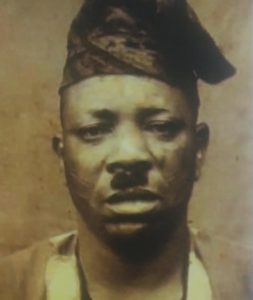
As Regent after the Alaran’s death, he led with integrity. He was known for defending Muslim youths, sharing Ramadan meals with children, and promoting moral discipline. His legacy continues through his family, including Engineer Muhammad Jamiu Afolayan.
Alhaji AbdulAzeez Adefila Ajiboye (Amowomara): The Legacy of Philanthropic Agbesinga
Born in 1932 into the Ile Olupo compound, Alhaji Ajiboye was a humble farmer, washerman, kerosene seller, and a wholesaler in agricultural produce. He was admired for his deep compassion and philanthropy, earning the nickname “Amowomara – Osefonile Sefalejo” (a selfless giver).
He was married to three wives and left behind many children and grandchildren. His legacy remains rooted in service, faith, and generosity.

Alhaji Hamza Abidoye Ajiboye: A Life of Faith Enterprise and Service
Born in 1933, Alhaji Hamza embraced Islam as a young man. Beginning as a food crop farmer and later working as a sawyer, he ventured into textiles and became a skilled watch repairer and caregiver.
A trailblazer of faith, he left an enduring impact through his quiet dedication to Islam and community service.
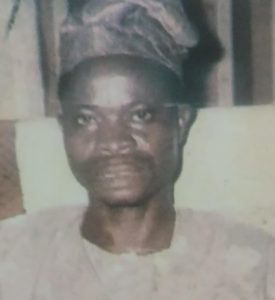
Alhaji Muhammad Raji Ajamu Olaoye: A Man of Faith, Industry and Service
Born in 1923, Alhaji Olaoye was a successful farmer and textile trader, earning the moniker “Baba Alaso.” As the only Muslim among his siblings, his dedication led to his appointment as the first Ladani, a position he held for over 20 years before becoming the community treasurer for nearly 40 years. Until his death in 2016, he served as Saraki Adinni of the Muslim community.
These remarkable individuals remind us that the spirit of early Islam—so often associated with Makkah and Madinah—has also lived powerfully among us. Their faith, resilience and leadership mirror the strength of Muslims across the world, including the people of Palestine, who continue to hold firm to their beliefs amidst adversity.
